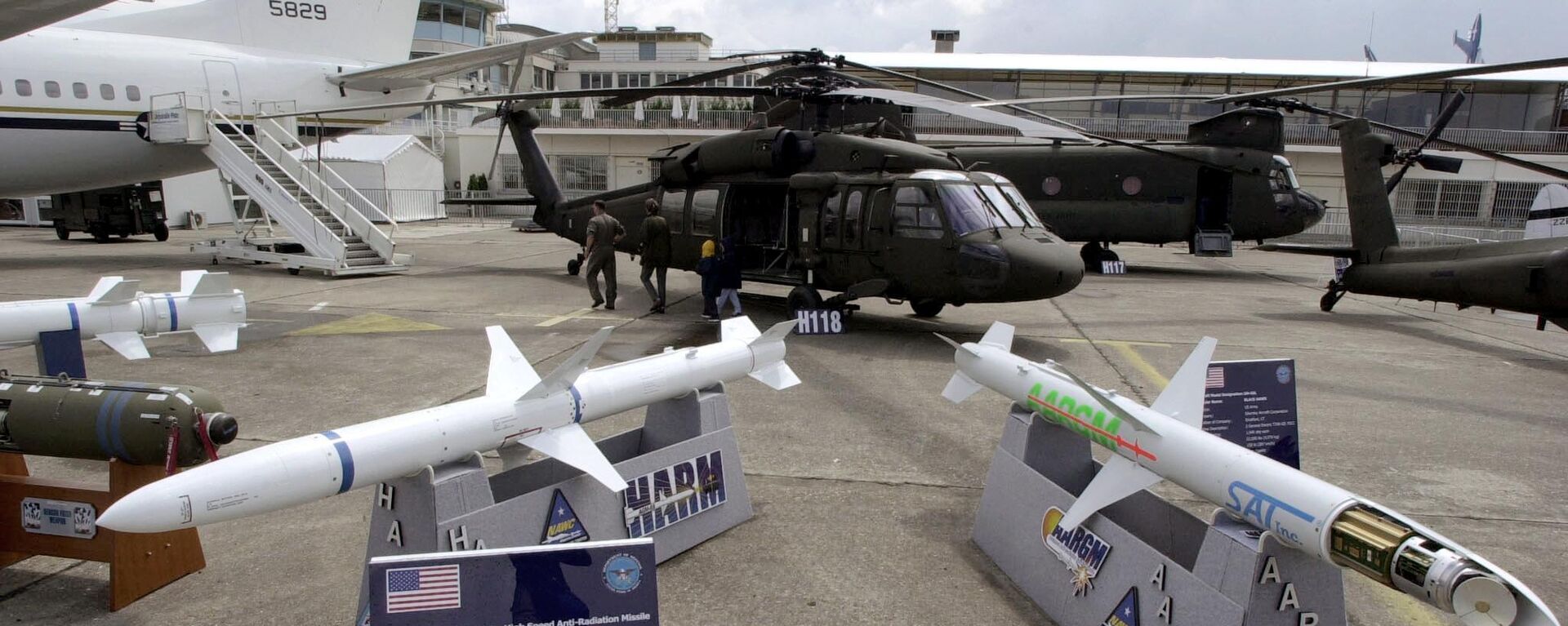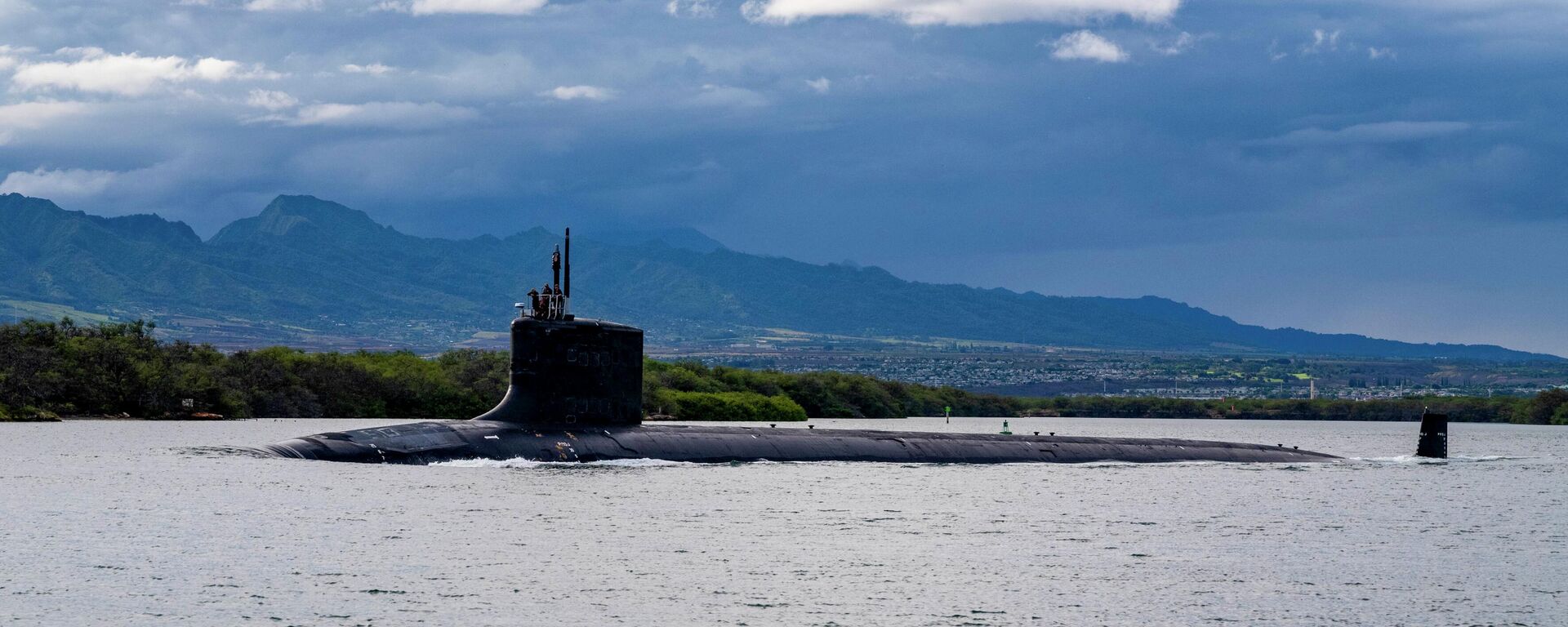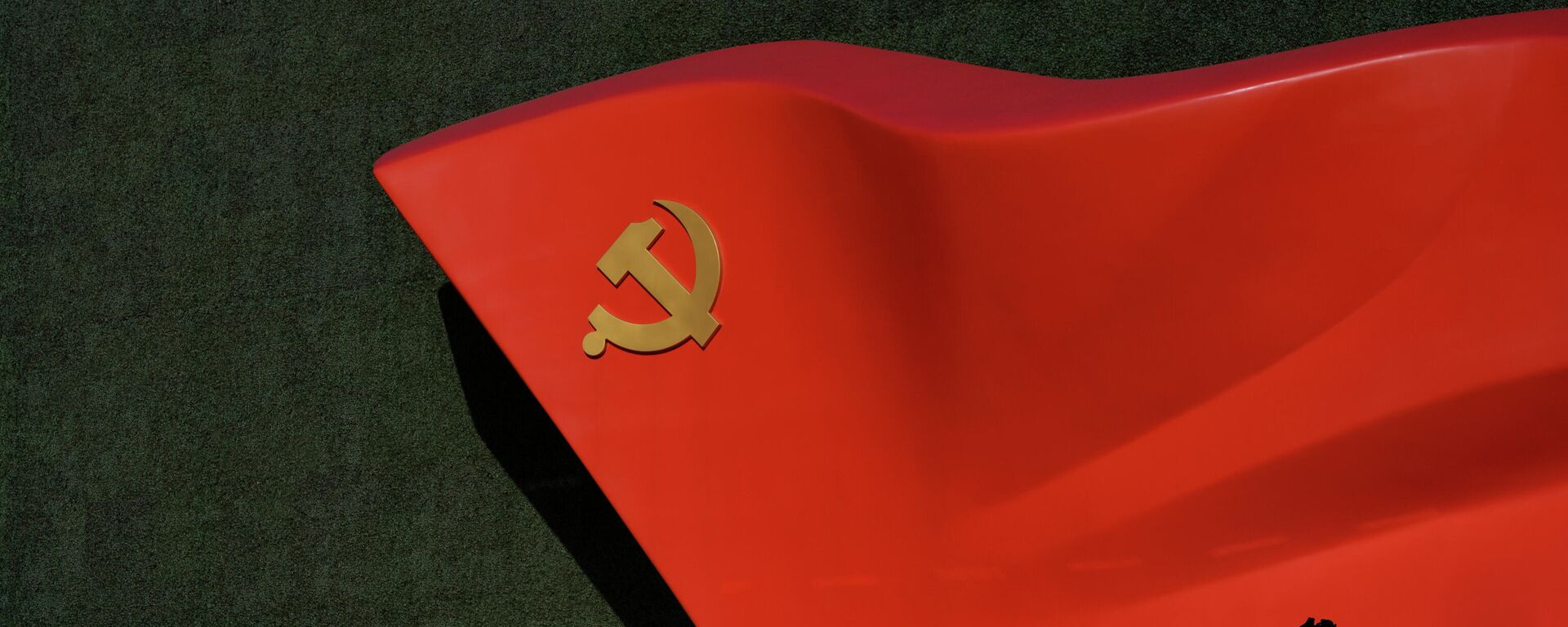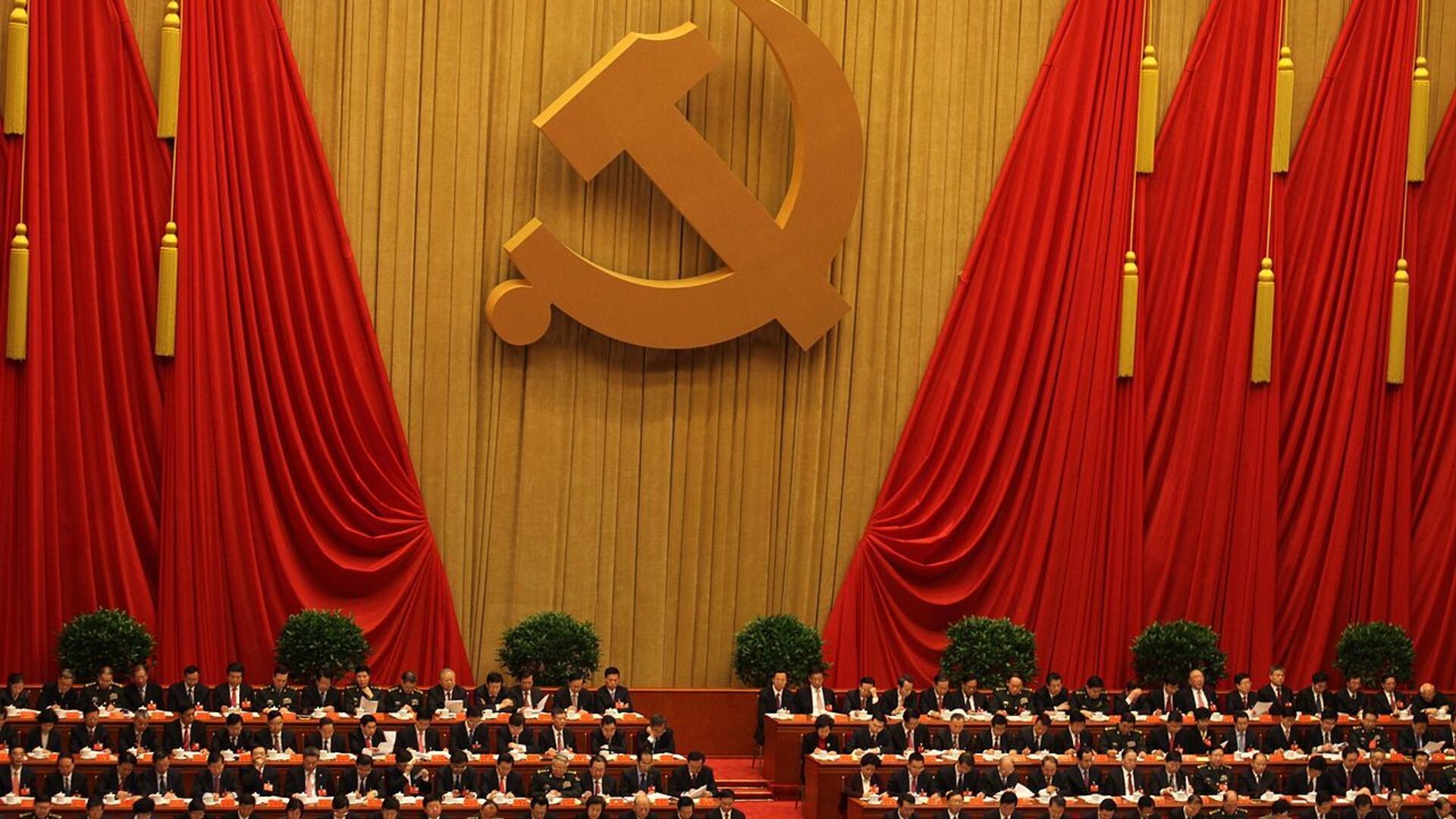https://sputnikglobe.com/20221017/ccps-20th-congress-prc-soft-power-will-thwart-us-attempt-to-hang-on-to-hegemony-observers-say-1101967566.html
CCP's 20th Congress: PRC 'Soft Power' Will Thwart US Attempts to Hang on to Hegemony, Observers Say
CCP's 20th Congress: PRC 'Soft Power' Will Thwart US Attempts to Hang on to Hegemony, Observers Say
Sputnik International
The Chinese Communist Party kicked off its 20th Congress on Sunday, with President Xi Jinping expected to be reelected as general secretary for a historic... 17.10.2022, Sputnik International
2022-10-17T19:06+0000
2022-10-17T19:06+0000
2022-10-19T20:37+0000
world
china
communist party congress
xi jinping
sanctions
asia
congress
https://cdn1.img.sputnikglobe.com/img/07e4/07/10/1079899105_0:67:1280:787_1920x0_80_0_0_040a43cbf9ef9ffde2fdc3fd37a84545.jpg
During Sunday’s speech at the opening of the CCP Congress, Xi Jinping pointed to the need to improve the mechanisms the nation has at its disposal to fight sanctions, foreign interference and extraterritorial jurisdiction, and to strengthen China’s national security by creating a “comprehensive and effective system of protection” for the nation. China, will continue to resist all forms of hegemony and the politics of naked force, Xi said.Asymmetric Tools“Western sanctions policy is rooted precisely in belief in its superiority in technology, the economy, finance and banking infrastructure. The West assumes that such pressure cannot be parried in any symmetrical way. But such a philosophy is alien to China, and for it the strategy of asymmetric responses comes first,” says Dr. Alexander Lomanov, an expert on Chinese politics and deputy director of the Russian Academy of Sciences’ Institute of World Economy and International Relations.China’s politicians and economists will be tasked with creating new asymmetric response strategies following the 20th Party Congress, Lomanov says.China is already “learning” from Western countries on the imposition of tit-for-tat restrictions aimed at the defense of the Asian nation’s national interests, Lomanov argues.“It’s clear that China will not use this strategy on its own initiative, and will not abuse it. But they are already applying some variants of these countermeasures – tariffs in response to tariffs, barriers in response to barriers, individual sanctions against Western politicians in response to similar measures against Chinese citizens,” he says.Win-Win World OrderWang Zhimin, director of the Beijing-based Research Institute of Globalization and China’s Modernization, says growing Western pressure on the People’s Republic is based in large part on the dramatic tectonic shifts being observed in the world economy and politics.China and the rest of the world have come up against two very different varieties of American unilateralism over the past several years, the observer says, one being “Trump-era unilateralism which ignores the interests of allies,” and the other being Biden’s “pseudo multilateralism,” aimed at attracting allies to form various, exclusive cliques and blocs.“China, unlike the US, has always adhered to genuine multilateralism, advocating cooperation to solve global problems and to achieve social and economic development based on the principles of mutual benefit and win-win results,” Wang says.The dramatic economic rise enjoyed by China over the past three decades puts it in a unique position to promote its vision of global interaction and cooperation, according to the researcher.“China is a major manufacturing nation and occupies an extremely important place in global industry. In addition, the country has ranked first place in the world in terms of total trade over the past decade, has become a first-rate driving force in growing the world economy, and the world’s single largest market,” Wang says.The 20th National Congress of the Chinese Communist Party will conclude on October 22.
https://sputnikglobe.com/20220916/beijing-slaps-sanctions-on-raytheon-boeing-execs-over-taiwan-arms-sales-1100865378.html
https://sputnikglobe.com/20220929/australian-senator-calls-for-withdrawal-from-aukus-slams-us-for-destabilizing-the-entire-region-1101332520.html
https://sputnikglobe.com/20221016/chinas-20th-communist-party-congress-kicks-off-in-beijing-1101889078.html
china
Sputnik International
feedback@sputniknews.com
+74956456601
MIA „Rossiya Segodnya“
2022
News
en_EN
Sputnik International
feedback@sputniknews.com
+74956456601
MIA „Rossiya Segodnya“
Sputnik International
feedback@sputniknews.com
+74956456601
MIA „Rossiya Segodnya“
china, communist party congress, xi jinping, sanctions, congress
china, communist party congress, xi jinping, sanctions, congress
CCP's 20th Congress: PRC 'Soft Power' Will Thwart US Attempts to Hang on to Hegemony, Observers Say
19:06 GMT 17.10.2022 (Updated: 20:37 GMT 19.10.2022) The Chinese Communist Party kicked off its 20th Congress on Sunday, with President Xi Jinping expected to be reelected as general secretary for a historic third term. In a speech outlining the country’s economic, governance, and security priorities, Xi mentioned the need to create new tools to challenge powers seeking global hegemony.
During Sunday’s
speech at the opening of the CCP Congress, Xi Jinping
pointed to the need to improve the mechanisms the nation has at its disposal to fight sanctions, foreign interference and extraterritorial jurisdiction, and to strengthen China’s national security by creating a “comprehensive and effective system of protection” for the nation. China, will continue to resist all forms of hegemony and the politics of naked force, Xi said.
“Western sanctions policy is rooted precisely in belief in its superiority in technology, the economy, finance and banking infrastructure. The West assumes that such pressure cannot be parried in any symmetrical way. But such a philosophy is alien to China, and for it the strategy of asymmetric responses comes first,” says Dr. Alexander Lomanov, an expert on Chinese politics and deputy director of the Russian Academy of Sciences’ Institute of World Economy and International Relations.
China’s politicians and economists will be tasked with creating new asymmetric response strategies following the 20th Party Congress, Lomanov says.
“These will be built on an understanding of specific countries engaged in anti-Chinese sanctions in order to find an opportunity to respond to the pressures imposed by these nations using asymmetric steps. The latter will be tasked with convincing these countries that putting pressure on China may inflict retaliatory damage against them,” the academic says.
China is already “learning” from Western countries on the imposition of tit-for-tat restrictions aimed at the defense of the Asian nation’s national interests, Lomanov argues.
“It’s clear that China will not use this strategy on its own initiative, and will not abuse it. But they are already applying some variants of these countermeasures – tariffs in response to tariffs, barriers in response to barriers, individual sanctions against Western politicians in response to similar measures against Chinese citizens,” he says.

16 September 2022, 13:58 GMT
Wang Zhimin, director of the Beijing-based Research Institute of Globalization and China’s Modernization, says growing Western pressure on the People’s Republic is based in large part on the dramatic tectonic shifts being observed in the world economy and politics.
“Today the world is facing profound changes not seen in a century, including both traditional and non-traditional security threats. We are also seeing the collective rise of developing countries, the transformation of global governance, and the accelerated evolution of the international landscape,” Wang notes. “In this context, we may come up against many challenges, but also many opportunities."
China and the rest of the world have come up against two very different varieties of American unilateralism over the past several years, the observer says, one being “Trump-era unilateralism which ignores the interests of allies,” and the other being Biden’s “pseudo multilateralism,” aimed at attracting allies to form various, exclusive cliques and blocs.

29 September 2022, 09:03 GMT
“China, unlike the US, has always adhered to genuine multilateralism, advocating cooperation to solve global problems and to achieve social and economic development based on the principles of mutual benefit and win-win results,” Wang says.
The dramatic economic rise enjoyed by China over the past three decades puts it in a unique position to promote its vision of global interaction and cooperation, according to the researcher.
“China is a major manufacturing nation and occupies an extremely important place in global industry. In addition, the country has ranked first place in the world in terms of total trade over the past decade, has become a first-rate driving force in growing the world economy, and the world’s single largest market,” Wang says.
The 20th National Congress of the Chinese Communist Party will conclude on October 22.

16 October 2022, 03:13 GMT





